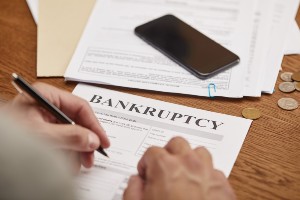Most people are aware there are different types of bankruptcy, but many are unable to explain the difference. In Chapter 13 bankruptcy, debt is re-organized and the person filing is responsible for much of what is owed on these debts. The goal is to create a payment plan that makes debt affordable again and enables the filer to “catch up” on past due debt. In the end, the person filing for bankruptcy was still responsible for his or her debt, though it will likely be less overall, it was just under a different and more manageable payment plan.
Chapter 7 bankruptcy, on the other hand, eliminates debts. It is not able to discharge all types of debt, but it does eliminate credit card debt – one of the main factors in why a person may or may not choose to file for bankruptcy. Lenders are often more aggressive when it comes to contesting Chapter 7 bankruptcy because it ultimately means they will never receive the money rightfully owed to them.
In addition to Chapters 7 and 13, there is another type of personal bankruptcy – Chapter 20 bankruptcy. It is far less known than the aforementioned types, and it involves discharging personal liability as a part of a Chapter 7 bankruptcy, and then removing a mortgage lien as part of a Chapter 13 bankruptcy.
Chapter 20 bankruptcy occurs as a result of consecutive filings of Chapters 7 and 13. Back-to-back bankruptcies are not usually necessary, but Chapter 20 can be an option for some people attempting to avoid foreclosure.
Is Chapter 20 Bankruptcy Necessary?
In many cases, a bankruptcy attorney is able to use Chapter 13 bankruptcy to stop foreclosure proceedings and provide enough relief to correct a mortgage default. However, when someone has substantial unsecured debt, back-to-back filings and Chapter 20 bankruptcy might be the best option. For many, though, Chapter 20 is just not necessary.
2005 changes to the Bankruptcy Code made bankruptcy laws regarding consecutive filings even more confusing for the courts and for those filing, and this confusion is one of the main reasons it is so important to consult an attorney before filing for bankruptcy. Chapter 20 can be effective for dealing with second and third mortgages on a home and using lien stripping as a strategy in bankruptcy, but the process is complicated and requires a firm grasp on both the mortgage industry and bankruptcy law.
To read more about lien stripping and how the 2005 changes affected the process, visit the American Bar website.
If you are unsure whether Chapter 7 or Chapter 13 bankruptcy are right for you, or you believe you could benefit from a combination of the two and potentially use Chapter 20 to avoid foreclosure on your home, you need to consult an experienced attorney. To learn more about Chapter 20 bankruptcy and whether it is even necessary in your case, contact the Law Offices of Robert M. Geller at 813.254.5696 to schedule a consultation or to discuss your situation.



























![Signs That You May Need to File Bankruptcy [Infographic]](https://djml3wkzi26ea.cloudfront.net/wp-content/uploads/2021/01/signs-chap7-v-chap13.jpg)
![How To File for Bankruptcy [Infographic]](https://djml3wkzi26ea.cloudfront.net/wp-content/uploads/2020/07/bankruptcy-steps-infographic-web.jpg)










